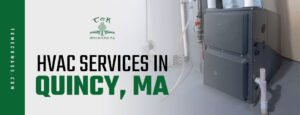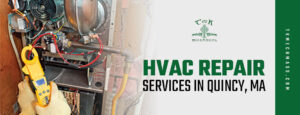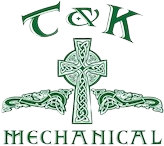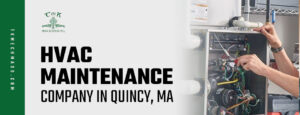Selecting the appropriate heating, ventilation, and air conditioning (HVAC) system for your home is a crucial decision that impacts comfort, energy efficiency, and overall cost-effectiveness. With various options available in the market, it can be challenging to determine which system best suits your needs. Among the popular choices are central HVAC and ductless HVAC systems. In this comprehensive guide, our HVAC services in Quincy, MA experts will delve into the key differences and similarities between these two options to help you make an informed decision for your home’s HVAC needs.

Operation:
Central HVAC systems are a traditional choice for residential heating and cooling. These systems typically consist of a central furnace for heating and a central air conditioner for cooling. During colder months, the furnace generates heat by burning fuel or using electricity, while the air conditioner cools the air during warmer months by circulating refrigerant through coils.
In contrast, ductless HVAC systems operate using heat pump technology, which allows them to provide both heating and cooling functions. Heat pumps transfer heat between indoor and outdoor environments, absorbing heat from the outdoor air to warm the interior space during winter and expelling heat from the indoors to the outdoors to cool the space during summer. This process of moving heat, rather than generating it, makes ductless HVAC systems more energy-efficient than central HVAC systems.
Ductwork:
According to reputable HVAC services in Quincy, MA experts, Central HVAC systems rely on a network of ducts to distribute conditioned air throughout the home. These ducts are typically installed within the walls, floors, or ceilings of the building and connect the central heating and cooling units to various rooms or zones. However, ducts can be prone to issues such as leaks, gaps, or inadequate insulation, leading to energy loss and decreased system efficiency.
On the other hand, ductless HVAC systems eliminate the need for ductwork entirely. Instead, they utilize individual indoor air handling units installed in each room or zone to deliver conditioned air directly to the space. This not only minimizes energy loss but also improves indoor air quality by eliminating the potential for dust, debris, or contaminants to accumulate within the ducts.
Expansion Capabilities:
One of the significant advantages of ductless HVAC systems is their flexibility and scalability when it comes to home renovations or expansions. Adding new indoor units to accommodate additional living space is relatively straightforward with ductless systems, as they require minimal construction and can be easily integrated into existing structures.
In contrast, extending ductwork for central HVAC systems can be a complex and costly undertaking, involving significant renovation work and disruption to the home’s interior. Additionally, ductless systems offer multi-zone heating and cooling capabilities, allowing homeowners to customize temperature settings for individual rooms or areas based on occupancy or comfort preferences.
Zones:
Central HVAC systems typically operate with a single thermostat that controls the temperature for the entire home. This can result in uneven heating or cooling throughout the house, as rooms or zones with varying heat loads may not receive adequate airflow or temperature regulation.
In contrast, ductless HVAC systems offer zone control, allowing homeowners to set different temperature settings for each indoor unit or zone. This level of customization enables precise temperature control and enhanced comfort, particularly in homes with multiple occupants or varying thermal needs. As stated by HVAC repair services in Quincy, MA experts, zone-based heating and cooling can lead to energy savings by avoiding unnecessary heating or cooling of unoccupied spaces.
Cost Differences:
When comparing the initial costs of central HVAC and ductless HVAC systems, both options may have similar upfront expenses for equipment and installation. However, ductless systems may offer long-term cost savings, particularly in homes requiring extensive ductwork or with specific heating and cooling needs. The elimination of ductwork reduces installation complexity and associated labor costs, while the energy-efficient operation of ductless systems can result in lower utility bills over time. Additionally, the scalability and zone-based control of ductless systems offer additional value in terms of flexibility and comfort customization.

Conclusion:
Choosing between central HVAC and ductless HVAC systems requires careful consideration of various factors, including operation, ductwork, expansion capabilities, zone control, and cost. While central HVAC systems are suitable for conventional heating and cooling needs, ductless HVAC systems offer greater flexibility, energy efficiency, and personalized comfort options. To determine the best HVAC solution for your home, it’s essential to consult with a reputable HVAC services in Quincy, MA provider who can assess your specific needs and recommend the most suitable system for optimal comfort, efficiency, and cost-effectiveness. Whether you opt for central HVAC or ductless HVAC, investing in the right system will ensure year-round comfort and peace of mind for you and your family.
Want to find out more? Visit us at T&K Mechanical!




